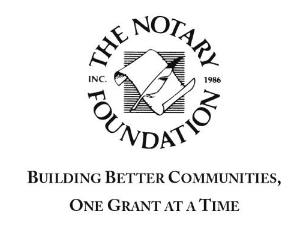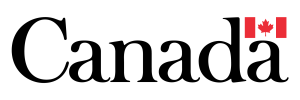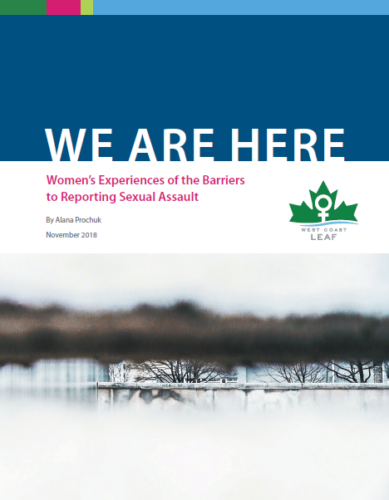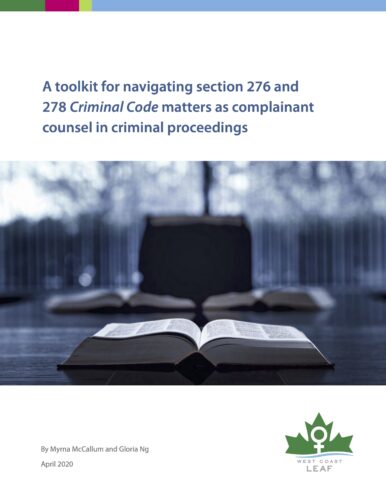
Dismantling the Barriers to Reporting Sexual Assault
It’s past time to dismantle the barriers to reporting sexual assault
Public concern about the treatment of sexual assault victims in the criminal justice system has reached new heights—as has public pressure to reduce systemic barriers to reporting this violent crime. The media has been shining a spotlight on the high proportion of sexual assault reports that are dismissed as unfounded as well as on multiple cases where judges have grossly mishandled sexual assault trials. Now more than ever, West Coast LEAF is dedicated to identifying how the criminal justice system can better respond to reports of sexual violence.
What we’re doing
West Coast LEAF is excited to be collaborating with the YWCA-Metro Vancouver on an innovative project called Dismantling the Barriers to Reporting Sexual Assault. To assess the current barriers and identify promising directions for change, we are talking to women who have been sexually assaulted about their experiences reporting or not reporting. Their firsthand knowledge is foundational to the project. We are also conducting interviews with experts in academia and across the criminal justice system.
The project aims to identify strategies to reduce barriers in the justice system for sexual assault survivors through dialogue among key stakeholders– including frontline anti-violence activists and service providers, police, former Crown, retired judges, academics, and defense counsel. How can the justice system better support victims of sexual assault while also respecting the constitutional and human rights of accused persons?
Our toolkit
In March 2020, in response to what we heard from survivors, we published a toolkit for navigating section 276 and 278 Criminal Code matters as complainant counsel in criminal proceedings. The toolkit aims to improve the legal representation survivors of sexual assault receive when their private records and history of sexual conduct are being sought in court.
Our report
As part of this project, West Coast LEAF’s law reform report is about why survivors often do not report through the criminal justice system – in their own voices. We Are Here: Women’s Experiences of the Barriers to Reporting Sexual Assault centers women’s experiences of the devastating impacts of sexual assault, which are all too often deepened by the legal system’s inadequate responses.
We are grateful to the Notary Foundation of BC for its financial support for our report.

Ongoing Law Reform
In June 2019, we sent a letter urging the government of British Columbia to invest in a rights-based framework for survivors of sexual assault by committing to provide dedicated, secure, and sustainable funding for community-based sexual assault crisis response teams and integrated sexual assault clinics across British Columbia.
We are joined in this ask by a growing number of umbrella and direct-service organizations that have been working tirelessly to support sexual assault survivors across British Columbia, including:
- Atira Women’s Resource Society
- Central Okanagan Elizabeth Fry Society
- Chilliwack Community Services
- Ending Violence Association of British Columbia
- South Okanagan Women in Need Society
- Surrey Women’s Centre
- Tri-City Transitions Society
- Victoria Sexual Assault Centre
- WAVAW Rape Crisis Centre
- YWCA-Metro Vancouver
Building on our history
This project builds on West Coast LEAF’s long history of work on sexual assault law and policy. Since 1999, our rights-based youth workshops have been addressing violence, stereotypes, and sexual consent through a gendered lens; dispelling victim-blaming myths; and inspiring youth to resist the culture of violence. Recently, we intervened in the Canadian Judicial Council inquiry that recommended that former judge Robin Camp be removed from the bench for his egregious comments about a sexual assault complainant. And in early 2016, we intervened in College of Massage Therapists of BC v Scott to ensure that the public can be meaningfully protected from practitioners who have been reported for sexual violence.
With this newest project, are deepening our understanding of the dynamics of inequality in the justice system, shaping future research and policy development, and ultimately laying the groundwork to strengthen the rights of women who have experienced sexual assault.
This project has been supported by Women and Gender Equality Canada.



